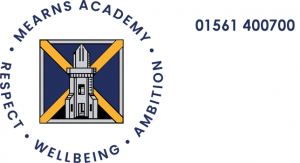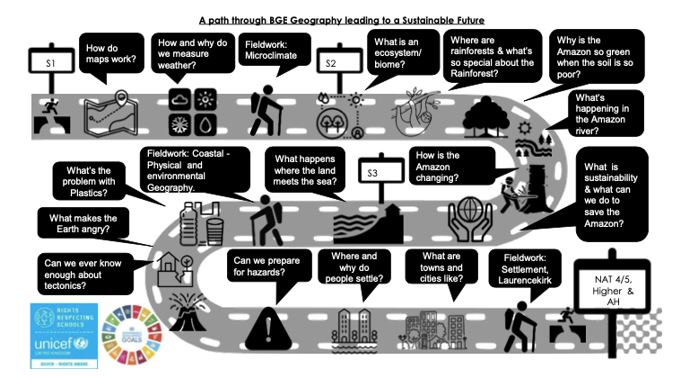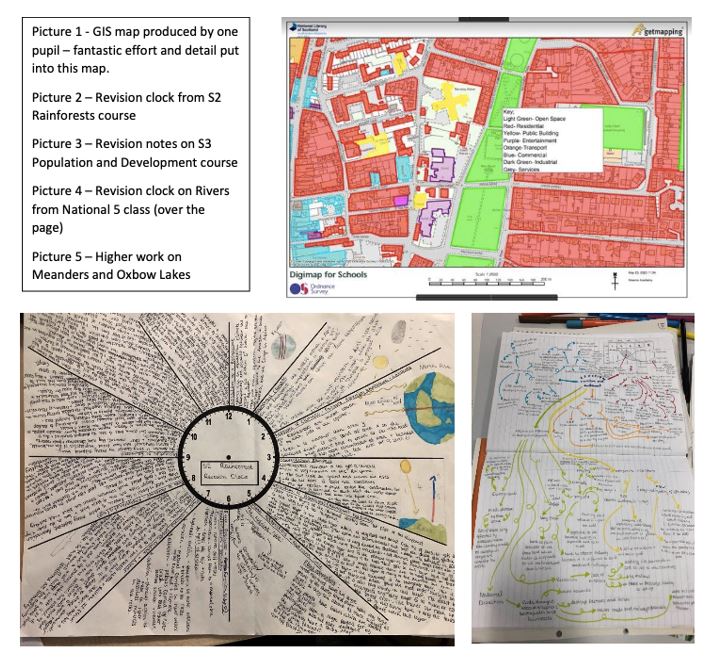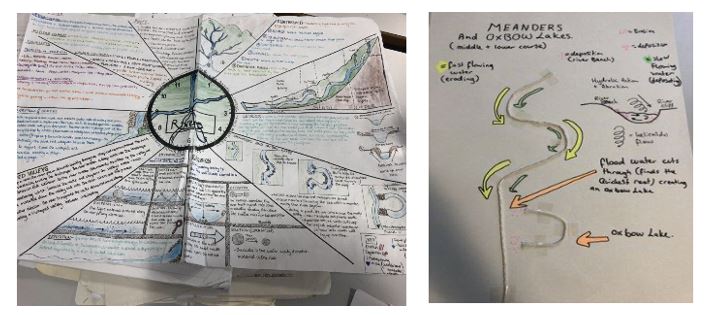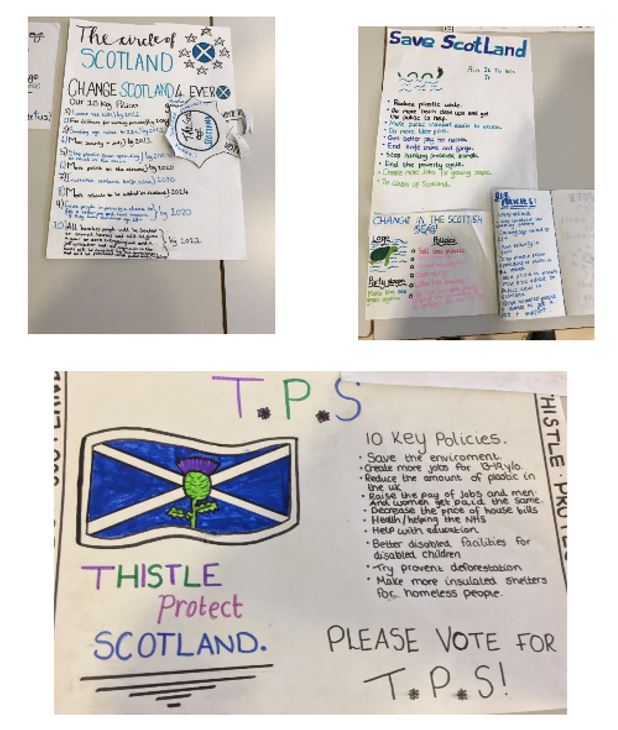Social Subjects
Social Subjects gives learners the chance to develop their understanding of the world by considering other people and their values and beliefs, in different times, places and circumstances.
As learners mature, their experiences will be broadened using Scottish, British, European and wider contexts for learning. There will be a focus on the historical, social, geographic, economic and political changes that have shaped Scotland.
Learners will also learn about human achievements and about how to make sense of changes in society, of conflicts and of environmental issues.
Why is it important to study Social Subjects?
- Social Studies creates a curiosity about real-world issues. It helps students to understand developments that are taking place in society and the world as well as their roles in shaping the future of the nation.
- Social Studies requires students to analyse a variety of perspectives of a particular issue before reaching their own well-reasoned conclusion.
- Studying History at school will help you understand change and how our global society came to be. History also expands your cultural understanding and highlights key events in the past.
- Geography explains the world around us by studying the natural and manmade factors and events, Geography helps you to understand the effects of globalisation and climate change. Learners will also gain an understanding of the earth’s physical processes, from climates to weather system.
- Modern Studies examines current issues in the world and gives learners an understanding of key events and their impact on the world. Modern Studies is a dynamic subject which changes all the time. The subject studies important social, political and economic issues.
S1-S3 Broad General Education (BGE) – Road Maps
The diagrams below show the subjects and topics studied in Geography, Modern Studies and History.
Geography N4/5:
- Learners are expected to develop their geographical skills through active learning activities like fieldwork and mapping and GIS exercises.
- The course content is made up of 3 units. In the Physical Environments unit students will cover the formation of limestone and river landscapes, land use management issues and weather systems.
- The Human Environments unit covers world population and distribution, contrasts in development and changes in rural and urban landscapes.
- In the Global Issues unit, learners study the issues involved in global climate change and environmental hazards. Pupils will also undertake an Added Value unit or Assignment.
Higher Geography:
- Students continue to develop their geographical skills, in particular mapping skills, research skills including field work skills and add a range of presentation skills.
- The first of the 3 units is Physical Environments and involves studying the earth’s atmospheric, ocean and fresh water circulatory systems, soils and the formation of glaciated and coastal features.
- The Human Environments unit covers the causes and impacts of changing population structure and land degradation as well as the management of urban change in developed and developing cities.
- The Global Issues unit adds depth to the study of Global Climate change and Development issues and introduces the causes, impact and management of a water-related disease. Pupils will also undertake an Assignment.
Advanced Higher Geography:
-
- This course is skills based with students engaging in a wide range of Physical and Human fieldwork.
- Data collected through fieldwork will complement their map work, processing and presentation skills resulting in the production of a fieldwork report.
- The students will also learn how to critically evaluate sources and opinions on key Geographical Issues.
History N4/5:
-
- Learners are expected to develop their historical skills through source work, research, and active learning. The course content is made up of three units.
- In the British unit, students cover Changing Britain, 1760-1900. Here pupils
- look at the development of the Industrial Revolution, its impact on health and
- housing, and finally the growth of democracy in Britain.
- The Scottish unit is The Era of the Great War, 1910-1928, where pupils look
- at WWI from the Scottish perspective. This includes fighting on the front, the rise and decline of industry, the role of women, and finally the impact the war had on politics.
- The European and World unit is on World War Two, 1939-45. Pupils will learn about the European invasion of the Nazis and the war in the Pacific. Pupils will also undertake a historical study added value unit and assignment.
Higher History:
- Pupils continue to expand their historical skills and analytical writing, particularly with analysing factors, source work, and historical research.
- The first unit of study is European and World in which we focus at the development of the Crusades. Pupils will learn why the Crusades were called, the reasons for victories and defeats and lastly, the decline of the Crusading Ideal.
- Medieval Britain is the second unit, looking at the development of the feudal system and the consolidation of power by Henry II of England, David I of Scotland, and King John. We also study how the church plays a vital role in everyday life and politics within medieval society.
- The Scottish unit covers the Wars of Independence and focuses on key events between Scotland and England in the 13th and 14th Pupils also undertake a historical studies assignment.
N4/5 Modern Studies: In National 4/5 Modern pupils study a range of relevant topics. Topic one is democracy in Scotland which examines Scottish politics. Following this, S4/S5 pupils will then study the causes and impact of crime in the UK. Finally, pupils will then examine the USA and their influence on the rest of the world. Pupils will gain a range of different skills and will have the opportunity to present their work in different formats. Pupils will complete course work as well as an assignment.
Higher Modern Studies: In Higher Modern Studies pupils also study three topics. Firstly, senior students will study the USA. However, the Higher course goes into far more detail. Following this, pupils will then study the causes and impact of inequalities in the UK. The final part of the Higher course will study Democracy in the UK and the workings of the UK Parliament and Government. This course provides pupils with a range of essential transferable skills that are important in later life. Course work will focus on essay and source skills. Pupils also complete an assignment.
Advanced Higher Modern Studies: In Advanced Higher Modern Studies pupils will study crime and the law in the UK and the Penal system. This course examines the causes and impact of crime in the UK. In addition, senior S6 students will also learn about prisons in the UK and whether they meet their aims. Course work continues to build on essay and source skills as well as completing a personal dissertation.
Geography – Follow Mearns Geography on Twitter.
Learners within Geography have produced a range of impressive revision materials and resources. Below is a selection of pupil work. Mrs Carlson and Mrs Bryce have an active Twitter page and it is regularly updated. Follow Mearns Geography on Twitter.
Trips and Experiences
History
In November 2019 14 senior pupils were given the chance to visit Krakow in Poland. The main purpose of the trip was to visit Auschwitz and to learn about conditions within sections 1 and 2 of the camp. However, the group were also given opportunities to explore Krakow. Our first day was well planned and saw us visit Oscar Schindler’s factory in the morning. We received a guided tour and the group learned about the History of Jews in Krakow and how the Nazi party gradually removed Jews from Krakow.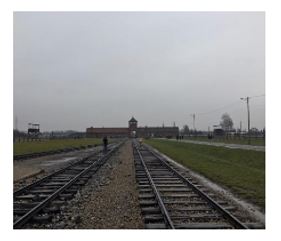
The next day was an early start and saw us visit Auschwitz-Birkenau. The journey took around one hour, and the group had been prepared about the trip. We visited Auschwitz 1 and were given a tour of the buildings in this part of the camp. Inside was a collection of artefacts left at the camp by Jewish families, this part of the camp was emotional, and the group were exposed to images and items that made the Holocaust more personal. The guide then took us to Birkenau, the second section of Auschwitz.
This was the extermination part of the camp and the guide gave us an insight into the process and conditions faced by individuals when they arrived. The trip back to Krakow was in silence as the group reflected on what they had just seen and experienced.
Modern Studies – Follow Mearns Mods on Twitter
S4 Modern Studies – One of our S4 Modern Studies classes visited Edinburgh high court in December 2019 to experience a live court case. Pupils attended a case where they were able to witness court proceedings and hear closing arguments of a case. Pupils found the experience very rewarding to their education about crime and law in Scotland. In the afternoon we attended the Scottish Parliament to sit in on the afternoon’s debates. Pupils saw MSP’s debating the state of the Scottish ferry services which at first you would not think would cause much excitement, but it got quite heated between the MSPs, adding some drama to our afternoon.
Two S2 classes were given the opportunity to participate in a mock election. This experience gave learners the chance to create a political party and produce a range of policies. Below are some examples of the work produced by some of the political parties.
